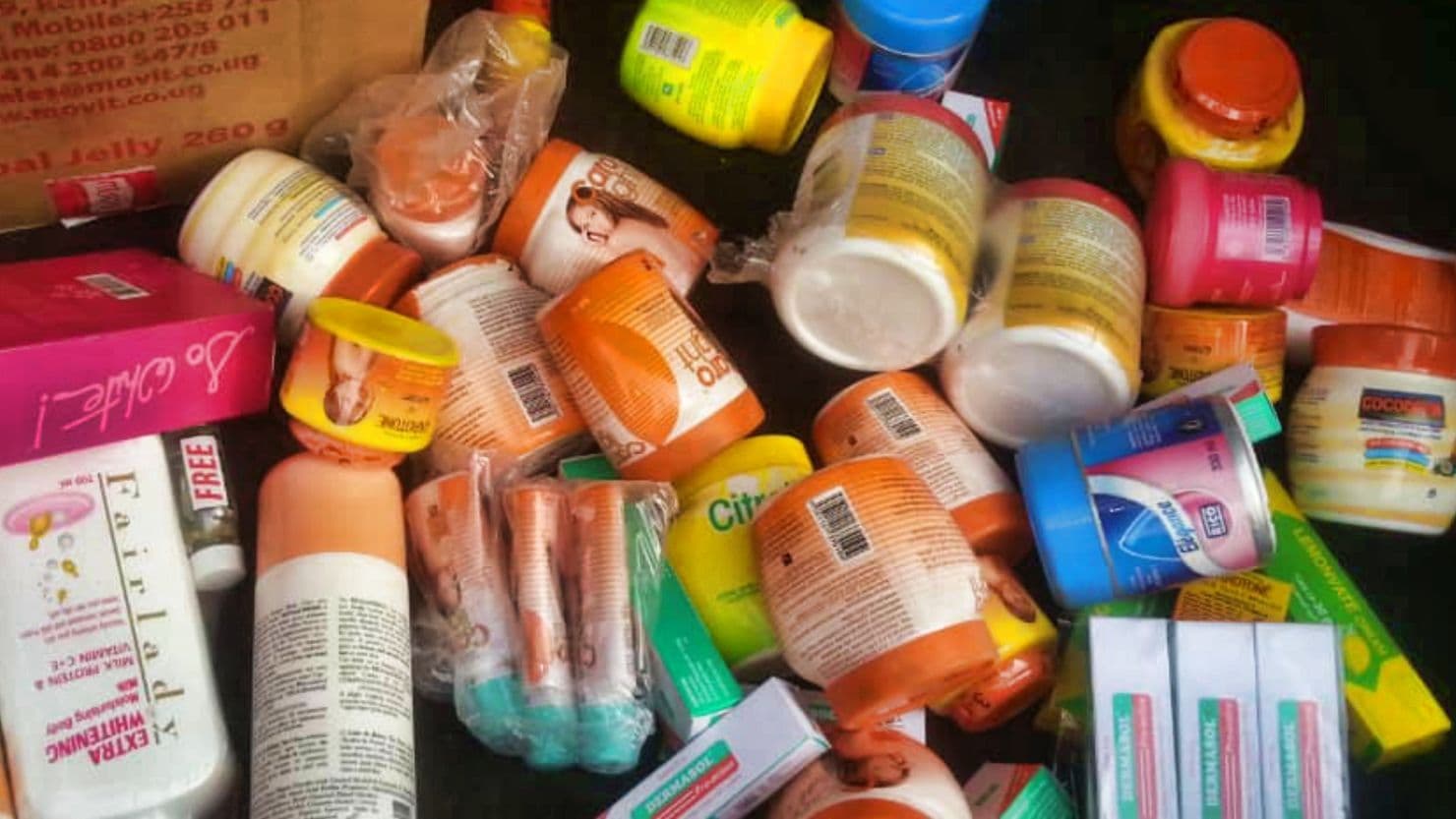We're loading the full news article for you. This includes the article content, images, author information, and related articles.
A new international study exposes how widely sold skin whitening products, available both online and in local shops, contain dangerously high levels of toxic mercury, posing severe health risks to Kenyan consumers despite a national ban.

A recent investigation by the Zero Mercury Working Group (ZMWG), an international coalition of environmental and health organizations, has revealed that several popular skin whitening creams sold in Kenya contain mercury at levels up to 14,000 times the legal limit. The report, titled “Zero Out Toxic Production” and released on Monday, November 3, 2025, identified specific products available on major e-commerce platforms like Jumia, Jiji, and Kilimall, as well as in local retail shops.
According to the study, which analyzed products purchased in Kenya, the Aneeza Gold Beauty Cream contained the highest concentration of mercury at 14,167 parts per million (ppm). Other products flagged for dangerously high levels included Golden Pearl Beauty Cream with 10,409 ppm and Faiza Beauty Cream with 9,609 ppm. The packaging of most of these products indicates they originate from Pakistan.
These levels are in stark violation of the Minamata Convention on Mercury, a global treaty to which Kenya is a signatory, which sets the maximum legal limit for mercury in cosmetics at 1 ppm. The World Health Organization (WHO) has identified mercury in skin lightening products as a significant public health concern, with long-term exposure leading to severe health complications.
Mercury is added to cosmetics to inhibit the production of melanin, the pigment that gives skin its color, resulting in a lighter complexion. However, the health risks associated with inorganic mercury, the form found in these creams, are severe and well-documented. The WHO and other health bodies warn that prolonged use can cause kidney damage, skin rashes, discoloration, and scarring. Neurological damage is a primary concern, with symptoms including anxiety, depression, psychosis, tremors, and memory loss.
Furthermore, the danger extends beyond the individual user. Family members, especially children and infants, can be exposed to mercury vapors released by the products or through contact with contaminated clothing and bedding. Pregnant women who use these products risk exposing their unborn children, as mercury can cross the placenta and is passed into breast milk, potentially harming the developing nervous system of the fetus and newborn.
The Kenya Bureau of Standards (KEBS) has explicitly prohibited the use of mercury and its compounds in cosmetic products, in line with national standards and international agreements. The agency maintains a list of banned products and states it conducts market surveillance and tests products from retail and online channels to ensure compliance. In October 2022, KEBS reported seizing 435 banned cosmetic products, including dozens of creams and soaps containing mercury.
Esther Ngari, the managing director of KEBS, stated on Monday, November 10, 2025, that the agency employs a Pre-Export Verification of Conformity (PVoC) program, where products are tested in their country of origin before shipment to Kenya. “Only products that meet the requirements are issued with a Certificate of Conformity. Products found to contain banned substances are seized and enforcement action is taken,” Ngari explained.
Despite these regulatory measures, the ZMWG report highlights a significant gap between policy and practice. The continued availability of these toxic products on mainstream online platforms and in physical stores across the country points to challenges in enforcement and the porous nature of the market. The report noted that even when specific batches of a product are identified as hazardous, other batches of the same brand with wildly varying mercury levels remain in circulation, indicating a severe lack of manufacturing quality control.
Health advocates and the ZMWG are calling for urgent action from governments to halt the production of these creams at their source and for online retailers to be held accountable for verifying the safety of products sold on their platforms.
Keep the conversation in one place—threads here stay linked to the story and in the forums.
Sign in to start a discussion
Start a conversation about this story and keep it linked here.
Other hot threads
E-sports and Gaming Community in Kenya
Active 9 months ago
The Role of Technology in Modern Agriculture (AgriTech)
Active 9 months ago
Popular Recreational Activities Across Counties
Active 9 months ago
Investing in Youth Sports Development Programs
Active 9 months ago